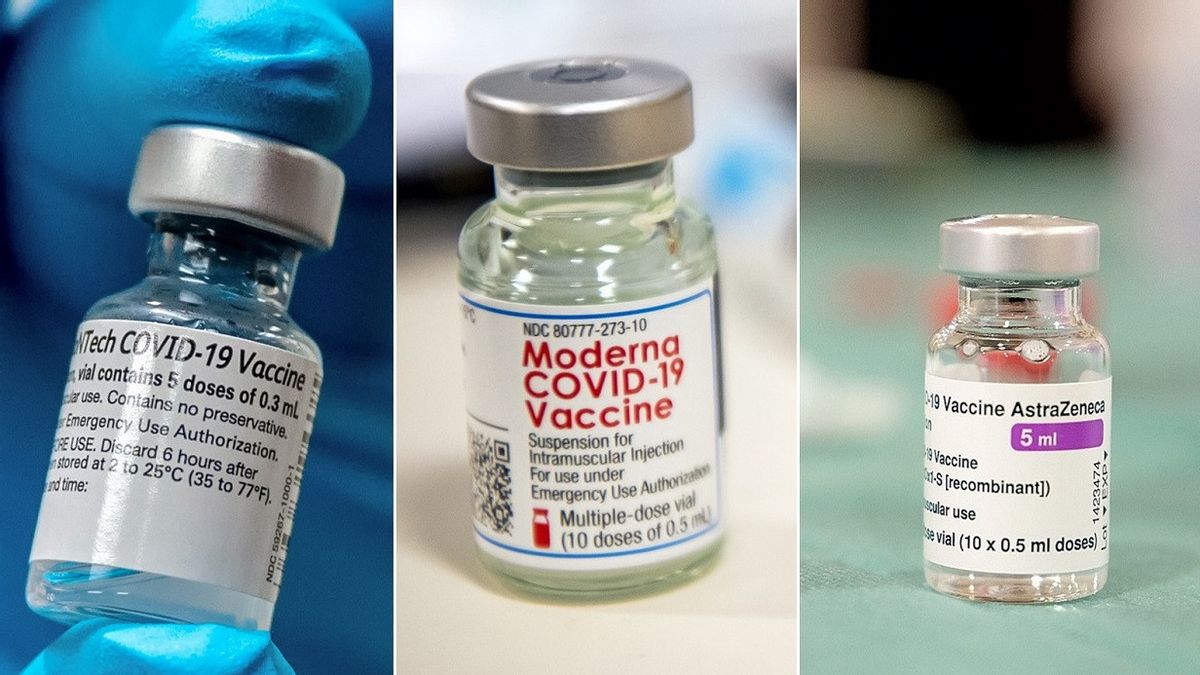JAKARTA - Although there are no official provisions, mixing doses of the COVID-19 vaccine is now increasingly being considered by a number of countries. Recently, the Danish Serum Institute said combining vaccine doses made better protection.
In a statement last Monday, the Danish Serum Institute said that combining AstraZeneca's COVID-19 vaccine with a second dose using the Pfizer or Moderna vaccine provided good protection.
Mixing doses of the vaccine in Denmark may be needed for a second dose, after local health authorities stopped using the AstraZeneca vaccine due to fears of rare side effects in April.
More than 144,000 Danes, mostly frontline personnel in the health sector and the elderly, received their first injection with the AstraZeneca vaccine. Then, they are vaccinated using Pfizer or Moderna vaccine for a second dose.
"Studies show that fourteen days after the combined vaccination program, the risk of SARS-CoV-2 infection is reduced by 88 percent compared to unvaccinated individuals," said Denmark's State Serum Institute (SSI).
That is high efficacy, SSI added, comparable to the 90 percent efficacy rate of two doses of Pfizer-BioNTech vaccine, confirmed in a different Danish study.
The study, published last week, covers a span of more than five months between February and June this year, the period during which the Alpha variant of the coronavirus was dominant.
It cannot be concluded whether the same protection is applied to the Delta variant, which is now most widespread in Denmark. In addition, the study also did not provide efficacy data on COVID-19-related deaths or hospitalizations, as none occurred after the combined vaccination programme.
European drug regulators in July refrained from making recommendations on schedules for mixing a COVID-19 vaccine with doses from different manufacturers, saying it was too early to confirm whether and when additional booster shots would be needed.
However, the European Medicines Agency (EMA) says two doses of two-shot coronavirus vaccines, such as those from Pfizer, AstraZeneca and Moderna, are needed to protect against the fast-spreading Delta variant of the coronavirus.
The EMA does not make definitive recommendations for changing doses, but advises countries to consider several conditions.
"To respond to this need and increase vaccination coverage, countries may adapt their strategies. Based on the epidemiological situation and circulation of the variant, as well as growing evidence of the effectiveness of the vaccine against the variant," the EMA said in a statement.
Meanwhile, the World Health Organization (WHO) previously warned individuals not to mix doses of the COVID-19 vaccine, saying the decision should be made by health authorities.
The English, Chinese, Japanese, Arabic, and French versions are automatically generated by the AI. So there may still be inaccuracies in translating, please always see Indonesian as our main language. (system supported by DigitalSiber.id)













